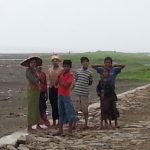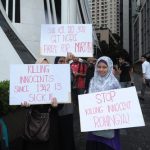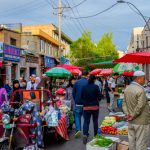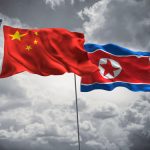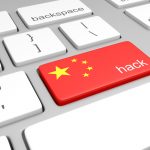China’s Influence on Australian Politics: An Interview with a Tibetan Refugee
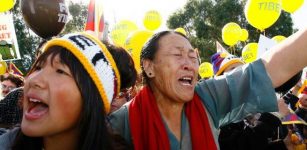
A group of Tibetan demonstrators conducted a peaceful protest over the Chinese occupation of their country, and the circumstances surrounding the death of prominent Tibetan religious leader Tenzin Delek Rinpoche, at the Chinese consulate in Sydney’s Camperdown in July 2015.
A recent Australian Financial Review article outlined that a business group claimed on social media that Australian assistant minister for industry Craig Laundy referred to those involved in the protest as “thugs.”
In his own media release Mr Laundy subsequently said he had actually condemned the “violence” of the protest.
The leader of the business group is Chinese Australian businessman Yang Dongdong. The article also calls into question the relationship that the minister has with Mr Yang, who has ties to the Chinese Communist Party (CCP).
Mr Yang has described himself as a “community adviser” to Mr Laundy’s office.
CCP influence in Canberra
This report follows on a recent investigation by Fairfax Media and the ABC’s Four Corners that suggests Beijing has attempted to influence senior parliamentarians in both the Liberal and Labour party. Over recent years, both parties have accepted millions of dollars in donations from two key Chinese businessmen.
One of these men, billionaire Huang Xiangmo has faced scrutiny over his leadership of the Sydney office of the United Front lobbying group. The Beijing-based group is involved in undermining the Taiwan independence movement, as well as asserting Chinese claims in the South China Sea.
The Turnbull government and ASIO have expressed concerns over Beijing’s conduct. And attorney-general George Brandis is considering new laws to counter foreign influence on local politics, similar to US laws that require anyone engaging in political activities on behalf of foreign governments to disclose their actions.
A nation under foreign occupation
The CCP began its invasion of Tibet in 1950. By the end of the decade, the entire nation was under the control of Beijing. On March 10 1959, the Tibetan Uprising broke out in the capital of Lhasa, when hundreds of thousands of local people surrounded the Potala Palace.
The uprising was brutally suppressed by Chinese troops, and a week later the Dalai Lama fled Tibet, which led to a mass exodus of about 85,000 Tibetans.
In 2012, former chair of the US senate committee on foreign relations Robert Menendez described Tibet as “one of the most repressed and closed societies in the world.”
Today, Tibetan citizens’ basic rights and freedoms are suppressed, and they live under the constant surveillance of Chinese authorities. Since February 2009, 150 Tibetans have self-immolated trying to draw attention to the plight of their people under Chinese rule.
A former political prisoner
One of the demonstrators at the 2015 protest was 22-year-old Gyamtso. He’s a Tibetan refugee who came to Australia three years ago, after having served two years imprisonment in China for taking part in the 2008 Tibetan Uprising.
Sydney Criminal Lawyers® spoke with Gyamtso, a former monk from Kham province – who was studying Buddhist philosophy at a monastery in Lhasa at the time of his arrest – about Beijing’s influence on Australian politics, and the conditions his people are facing back in Tibet.
In July 2015, you, along with other members of the Tibetan community, were protesting out the front of the Chinese consulate in Camperdown.
What were you protesting about at the time? And how many people were involved?
We lost our country under Chinese rule. And we were commemorating March 10 1959. At the time, there were over 200 Tibetans at the protest at the Chinese consulate. Seven protesters got inside.
So seven people got into the consulate grounds?
Yes. They got caught inside. We got the opportunity to get into the consulate, when the gates were open.
You were also protesting the death of Tenzin Delek Rinpoche. Why were you protesting his passing?
In the Chinese media, they said that he died because of an illness. But in the evidence from his sister, they found out that he was poisoned by the Chinese government – by some policemen. He was poisoned during his lifetime in prison. He died because of torture and poison.
They didn’t allow western physicians to investigate whether he died because of an illness or because he was poisoned. The Chinese never allowed this.
We strongly believe he died because of torture and poison.
A recent article reported that a business group alleged Australian assistant minister for industry Craig Laundy called the demonstrators “thugs.” He said in a subsequent media release that what he had actually said was he condemned the violence of the protest.
What do you think about these comments?
He is absolutely wrong.
Was there any violence during the protest?
No. We crossed the boundary. The land belongs to the Chinese government. And we crossed this without permission from the government. That’s the violation.
There are reports in the Australian press that the CCP is attempting to influence senior parliamentarians.
What do you think about these developments?
With globalisation, every country is depending on the Chinese economy. But we must make sure that democracy and justice are our first priority, before the economy.
Because the Chinese economy is unassailable. It is not like our economy. They are communists. Their economy is controlled by politicians – by some groups that don’t belong to the people.
What should Australians think about the influence the CPP has on local politics?
The influence is huge and strong. We have to condemn it now. We have to write to the prime minister. If the Chinese influence on the economy increases over the next few years, we will lose our liberty, freedom and justice, and our fundamental rights.
You were arrested and imprisoned for protesting as part of the 2008 Tibetan Uprising. Can you tell us a bit about what the unrest involved?
It was not just in one province. All Tibetans uprose over the illegal occupation of Tibet for 58 years. They were giving the message to the Chinese government.
We lost the country in the 1950s, and Tibet was totally occupied in 1959. I lost my grandparents under Chinese occupation and my parents are still suffering.
The new generation has been hugely influenced by the Chinese government through propaganda to be against our leaders, like His Holiness and our government-in-exile.
But still our spirit is with our freedom and our struggle. We have never forgotten this for the last 50 years. At the demonstration, the new generation and monks and nuns were against the illegal occupation of China.
What did you do during the uprising?
A protest march through Lhasa, because my monastery was based in Lhasa. A few were from the Jokhang temple – the main temple. We marched through the temple and shouted that we want freedom.
I marched with my monk friends. I was the second youngest there. There was another one, 14 years old – very young.
And you were arrested for taking part in the uprising?
At that time, everyone was arrested.
You were imprisoned for two years. What was it like being sent to prison at the age of 15?
I was very young. I had no idea what was going on. They put me in gaol. There were many killers and robbers.
One man asked me, “You are so young. What did you do wrong?”
I said, “I protested the Chinese government for my country, because freedom.”
He said, “You did nothing wrong. Why were you put in gaol?”
I told him, “I did nothing wrong. Why did they put me in gaol?”
How did you eventually leave Tibet?
I was under 18. My parents said, “He will not do it again.” And they took me out from the gaol after two years. They found out if I stayed in Tibet, it was not safe for my future. So my parents and relatives advised me to travel to India for a better education.
So you travelled across the mountains to India. What was the journey like?
It was a very hard time. There was no food. We just depended on the snow. We just ate the snow. There was no food for three days.
And from India, how did you come to Australia?
I got this opportunity, because I am an ex-political prisoner. I got sent to Australia for a brighter future.
Today, what’s life like for Tibetans still living in their country under Chinese rule?
It’s very serious. People are suffering. They don’t have fundamental freedoms. And they don’t know whether they will live tomorrow. Tibetans inside Tibet are like refugees in their own land. They don’t have rights in their own land. It’s unimaginable.
Currently, the way of life of the Tibetan nomad is under threat from the Chinese government.
What’s actually happening to the nomads of Tibet at the moment?
They’ve lost their own land. They have to move into towns, under very poor conditions. Suddenly, they have to change their lifestyle, so it’s very difficult. They moved into the town under force, because their land has many resources.
The politicians and the businessmen are doing deals. If the nomads move from the grassland, they can dig out gold, and have numerous mines. They are doing business, and economically it is terrible for the next few generations, because for the last few centuries the nomads cared for the Tibetan environment.
Now the grasslands are turning into desert. A few western journalists have taken pictures. A few of my relatives who are nomads have moved into town and they don’t have jobs, because they don’t have skills.
So now the land has turned into desert. And they are mining and building industry. So it’s bad for the future.
Chinese authorities are currently demolishing the residences of the people living in Larung Gar, which is the home of the largest Buddhist institute in the world.
During the last twelve months, over 4,725 dwellings have been torn down and around 5,000 people have been forced to leave the town.
Why has the Chinese government decided to tear down parts of this town, and evict the residents?
Larung Gar, as you know, is the largest Buddhist institute if you want to study Buddhist philosophy.
As Buddhism has spread around Asia, China and Tibet, it has influenced and inspired many of the younger generation in China. There are many Chinese students in Larung Gar.
The monks are doing good things for the people, so it has become the main target for Chinese government agencies. They don’t want to let monks and scholars teach the people, so they started to demolish 50 percent of the homes.
And lastly, Gyamtso, it’s been over sixty years since the Chinese invaded Tibet.
What do you foresee happening to Tibet in the future? Do you believe your country will once again be free and autonomous?
Every single Tibetan including me is hoping for a better future in Tibet – that freedom can carry on. One hundred and fifty monks, nuns, scholars and students have self-immolated, because they hope for future generations.
So I strongly believe that one day Tibet will be free.
Gyamtso thanks very much for taking the time out to speak with us. And best of success with your campaigning to free Tibet.
Thank you so much.
Receive all of our articles weekly
Author

Paul Gregoire

